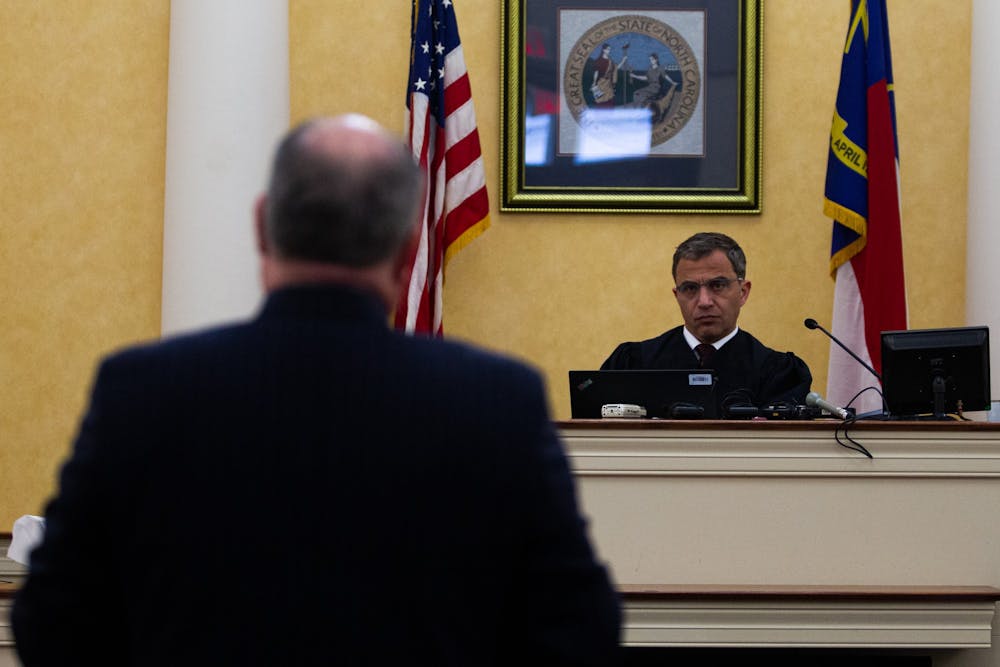Baddour did not come to a final decision on what will come of the $2.5 million trust provided to the SCV for the monument’s care and preservation. The fate of the monument itself is also undetermined.
Elizabeth Haddix, managing attorney for the Committee's case, said she’s happy with the Baddour’s decision on what she believed to be a very clear case.
“It's a great victory for the people,” Haddix said.
In the Courtroom
Over the course of the decision, multiple parties argued for or against the validity of the deal.
Boyd Sturges, representing the SCV, said the group had a justified claim to the Silent Sam monument via the United Daughters of the Confederacy, and negotiated “in good faith” with the Board of Governors.
“At the end of the day, my client had the standing then to negotiate this,” Sturges said. “And it was done. The fact that folks don’t like it — it’s certainly their right — but it’s not really very relevant.”
The BOG could have worked and waited for years to get a decision from the court that would answer the legal question of what to do with Silent Sam, Ripley Rand, representing the UNC System and Board of Governors in the settlement, argued.
That risk was “unacceptable” to the Board, he said.
“We all know that this was a very volatile time on campus, maybe the most volatile time in the history of the University,” Rand said. “The Board of Governors wanted to bring this volatility to an end.”
Haddix said her opponents had argued that the question of what to do with Silent Sam was a political issue.
“The problem with that argument is that it is not for this court to resolve a political issue,” she said.
To get the day's news and headlines in your inbox each morning, sign up for our email newsletters.
The judge also heard from Burton Craige, who represented a group of 88 alumni appearing as friends of the court who were opposed to the settlement. Craige argued that the University, not the UDC or SCV, held ownership of the moment and had since its commission and installment in 1913.
What’s Next
Drew said she didn’t expect Baddour to make the decision he did Wednesday morning.
“It is great that the judge chose the freedom side,” Drew said “... They chose the voices of students, staff, faculty (and) community members who have been voicing this for decades.
Moving forward, Drew said she’d like to see the statue destroyed.
“It represents a false history,” Drew said. “And it represents a history that is alternative to the truth-seeking motivations and mission of the University.”
Multiple UNC alumni were in attendance for the court decision, including Walter Jackson and former congressman Mel Watt, two classmates who graduated in 1967and were among the first Black students to attend the University.
Watt said he was elated by the outcome.
“From my perspective,” he said. “This was a pretty clear-cut case, where they tried to use the court to put a stamp of approval on something that —”
“It was wrong,” Jackson said.
Watt nodded.
“It was wrong,” Watt said. “And for the court to say, 'I'm not going to allow the court to be used that way’... I think the result is the right result.”
Jackson agreed and said the settlement was flawed from the beginning.
“I think it's an understatement to say that African American alumni by and large were outraged over the idea of giving $2.5 million of the University's money to the Sons of Confederate Veteran, given that organizations legacy and purposes,” he said. “It just made no sense.”
@hannaherinlang
university@dailytarheel.com




